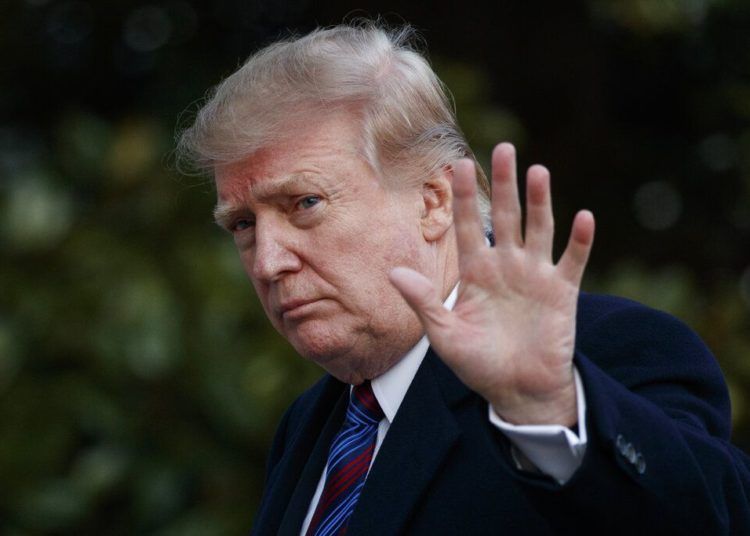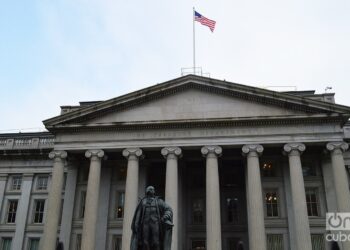The Trump administration is seriously considering whether to allow Title III of the Cuban Liberty and Democratic Solidarity Act (Helms-Burton) to go into effect in March, according to National Security Adviser John Bolton.
On January 16, Secretary of State Mike Pompeo announced that he was suspending Title III for just 45 days instead of the usual six months while the administration reviews whether its implementation would promote democracy in Cuba. He warned foreign companies doing business on the island that they had better “reconsider whether they are trafficking in confiscated property and abetting this dictatorship.”
Title III allows U.S. nationals to file suit in U.S. courts against anyone “trafficking” in their confiscated property in Cuba—that is, anyone profiting from it.
If President Trump allows Title III to go fully into effect, he will open the door to as many as 200,0000 law suits by U.S. nationals, most of them Cuban-Americans, whose property was taken by the Cuban government after 1959.
U.S. courts would be swamped, the ability of U.S. companies to do business on the island would be crippled, and allies abroad might retaliate for U.S. suits brought against their companies in Cuba.
Once the suits have been filed, there will be no way to undo the resulting legal chaos and the tangle of resulting litigation could take years to unwind.
What would happen if the U.S. applies Title III of the Helms-Burton Act?
The U.S. Foreign Claims Settlement Commission has certified 5,913 claims of U.S. nationals whose property was seized. These are the claims that Cuba recognizes and that the United States and Cuba had begun to discuss during the Obama administration. But Title III takes the unusual position of allowing naturalized Cuban-Americans who lost property to also file suit against alleged traffickers.
Normally, international law recognizes the sovereign right of governments to dispose of the property of their own citizens. According to the Department of State, by including Cuban-Americans who were not U.S. citizens when their property was taken, Title III creates the potential for an estimated 75,000-200,000 claims worth “tens of billions of dollars.”
Back in 1996, when the law was being debated in Congress, angry opposition from U.S. allies Canada, Mexico, and the European Union, whose companies doing business in Cuba would be the targets of Title III law suits, led President Bill Clinton to insist on a presidential waiver provision in Title III.
As a result, the president has the authority to suspend for six months the right to file Title III law suits, and he can renew that suspension indefinitely. Every six months since the Cuban Liberty and Democratic Solidarity Act was passed, successive presidents, Democrat and Republican alike, have continued the suspension of Title III.
U.S. allies have denounced Title III’s extraterritorial reach. Mexico, Canada, the United Kingdom, and the European Union all passed laws prohibiting compliance with it. The European Union also filed a complaint with the World Trade Organization, which it did not pursue after President Clinton suspended Title III. In fact, the principal justification both President Clinton and President George W. Bush offered for continuing the suspension was the need to maintain cooperation with European allies.
If President Trump does not renew the suspension, all these old wounds with allies will be reopened as U.S. claimants try to haul foreign companies into U.S. courts for doing business in Cuba.
He already has enough tough issues on the agenda with Mexico, Canada, and Europe without adding another one. At this very moment, Washington is trying to muster their support in dealing with the Venezuelan crisis, support that could be endangered if the administration picks a fight with them over Title III.
U.S. businesses would not be exempt from potential liability. A Cuban-American family in Miami claims to have owned the land on which José Martí International Airport was built, so any U.S. carrier using the airfield could conceivably be sued under Title III. Another family that owned the Port of Santiago could file suit against U.S. cruise ships docking there.
Moreover, it would be almost impossible for a U.S. or foreign company to know in advance whether a proposed business opportunity in Cuba might become the subject of Title III litigation. “This will effectively end for decades any attempt to restore trade between the U.S. and Cuba,” attorney Robert Muse told the Tampa Bay Times.
When President Trump announced new sanctions on Cuba back in June 2017, senior administration officials said they were designed “to not disrupt existing business” that U.S. companies were doing in Cuba. If the president fails to continue the suspension of Title III, business relations will be disrupted far more severely and irreparably than they would be by any regulatory change.
_______________________
William M. LeoGrande is Professor of Government at American University in Washington, DC, and co-author with Peter Kornbluh of Back Channel to Cuba: The Hidden History of Negotiations between Washington and Havana (University of North Carolina Press, 2015).










